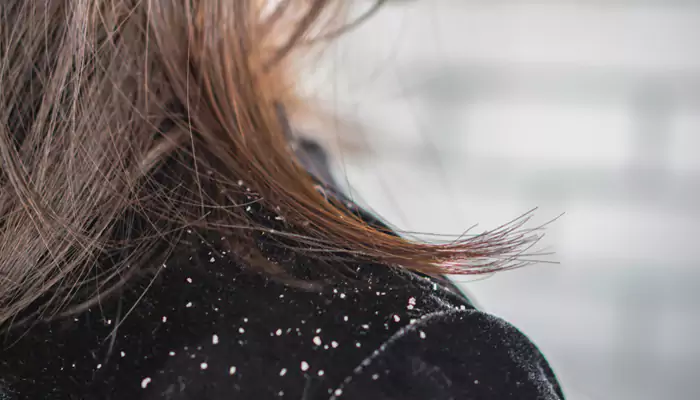Flake Facts – Understanding the Difference Between Dandruff and Dry Scalp
Dandruff and dry scalp are two common scalp conditions that share similar symptoms but have different underlying causes and treatments.
- Ishani Karmakar
- 19 January, 2024
- 2 mins ago

Flake Facts – Understanding the Difference Between Dandruff and Dry Scalp
Dandruff and dry scalp are two common scalp conditions that share similar symptoms but have different underlying causes and treatments.
This article delves into the distinctions between them, providing data-backed insights and practical advice.
Dandruff – An Oily Affair
Dandruff is a scalp condition characterized by the presence of large, oily flakes and an itchy scalp. Contrary to popular belief, dandruff is not caused by poor hygiene but by an overproduction of oil and an overgrowth of the yeast Malassezia. This yeast is a normal part of the scalp's microbiome, but in some individuals, it proliferates excessively, leading to the rapid turnover of skin cells and the formation of visible flakes.
Causes of Dandruff
Seborrheic Dermatitis: This is the primary cause of dandruff, causing oily, red, and scaly skin.
Fungal Growth: The fungus Malassezia can trigger dandruff when it multiplies rapidly.
Hormonal Changes and Stress: These factors can exacerbate dandruff.
Medical Conditions: Certain conditions and nutritional deficiencies can increase susceptibility to dandruff.
Dry Scalp – A Moisture Issue
Dry scalp, on the other hand, arises from a lack of moisture in the skin. The skin on the scalp becomes irritated, leading to flaking and itching. Dry scalp flakes are generally smaller and less oily than dandruff flakes.
Causes of Dry Scalp
Environmental Factors: Cold, dry air can exacerbate dry scalp.
Contact Dermatitis: Reactions to hair care products can lead to dryness.
Age: Older individuals are more prone to dry scalp due to decreased oil production.
Harsh Hair Products: Some products can strip natural oils from the scalp, leading to dryness.
Distinguishing Between the Two

While both conditions present with an itchy, flaky scalp, their differences lie in the nature of the flakes and the overall scalp condition. Dandruff flakes are typically larger and oily, whereas dry scalp flakes are smaller and dry. Additionally, dandruff often accompanies an oily, red, and scaly scalp, while a dry scalp is usually just that – dry, without significant oiliness or redness.
Treatment Strategies
For Dandruff
Specialized Shampoos: These contain active ingredients like pyrithione zinc, selenium sulfide, or ketoconazole to reduce fungal growth and flaking.
Lifestyle Changes: Regular hair washing and managing stress can help control dandruff.
Medical Consultation: For severe cases, a dermatologist may prescribe stronger treatments.
For Dry Scalp
Moisturising Shampoos and Conditioners: Products designed for dry scalp can help restore moisture.
Gentle Hair Care Products: Avoiding harsh chemicals is key to maintaining scalp health.
Hydration and Diet: Proper hydration and a balanced diet can improve skin health, including the scalp.
Prevention Tips
Regular Washing: Use an appropriate shampoo for your scalp type.
Avoid Harsh Chemicals: Chemicals in hair products can aggravate both dandruff and dry scalp.
Moderate Sun Exposure: UV light can help control dandruff, but balance is essential to avoid skin damage.
Stress Management: Techniques like yoga and meditation can help mitigate stress-related scalp issues.
The Long Term Outlook
Dandruff is a chronic condition that can be managed but not cured. Flareups may come and go, and continuous treatment is often necessary to keep symptoms at bay. In contrast, dry scalp may be more easily managed by adjusting hair care routines and environmental factors.
Understanding the nuances of these common scalp issues is essential for effective treatment and management. Whether it's dandruff or dry scalp, the right approach can lead to significant relief and improved scalp health.






